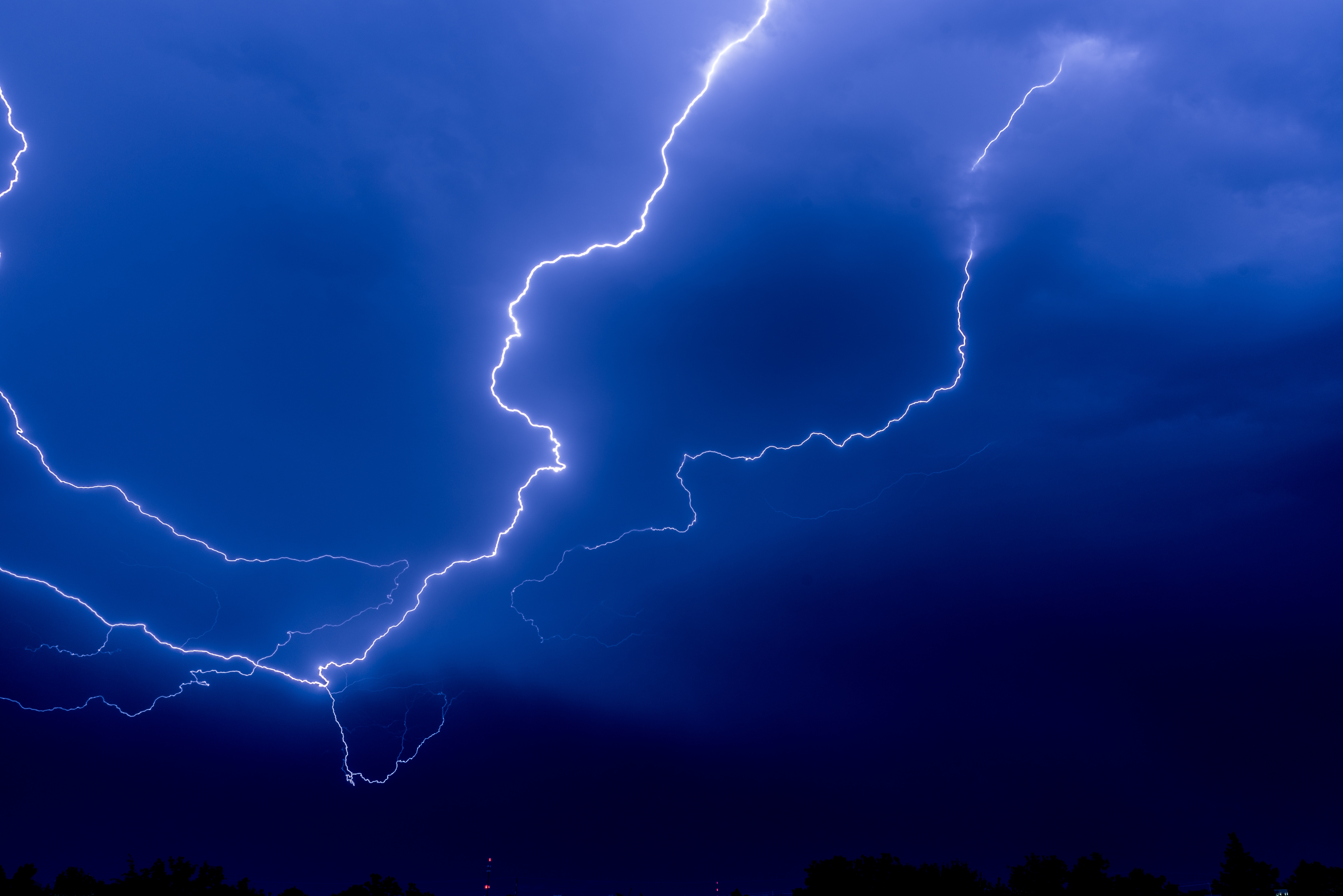Did you know that camping is the third most common activity people are doing when they are hit by lightning? This is according to a report by the Lightning Safety Council.
There are five ways lightning can strike a person: (1) a direct strike, when a person is hit directly and becomes “a part of the main lightning discharge channel”; (2) a side flash, when lightning strikes a taller object near someone and a portion of the current jumps from that object to the person; (3) ground current, in which the energy from a lightning strike travels outward from an object along the ground surface; (4) conduction, in which lightning travels over distances such as wires and metal surfaces; and (5) streamers, basically smaller lightning strikes that discharge when the “big” lightning strike happens.
So what can you do to avoid from becoming a lightning strike victim?
- Get indoors. A building is the best option, a car or other type of vehicle a close second. The metal shell disperses the lightning around you and to the ground if struck. A tent or open pavilion is risky because of the materials and being exposed to the open air. An RV isn’t the best choice either as they can get blown over in high winds, but if you have no other choice, then try to stay in a hallway and away from windows. But if you’re caught in a thunderstorm when you’re outdoors and have nowhere to go, then follow the advice given in the rest of these tips.
- Avoid open areas. This is where most direct strikes happen and the most fatal, although the least common. Open areas include fields and the tops of hills.
- Avoid from taking shelter under a tall object, such as a tree. Even if that means running through hail or rain. Stay in low areas, such as a ditch. You may get drenched, but you’ll be safe.
- Avoid bodies of water. Water is an excellent conductor of electricity. Don’t be in or near beaches, lakes, rivers, or pools when it’s about to storm or in the midst of a storm.
- Avoid from using anything connected to metal wires or plumbing. This includes anything that plugs into electrical outlets (yes, even laptops), and water faucets and showers. Unplug items from the wall. Don’t take a shower during a thunderstorm for this very reason – and you also won’t have to do the dishes, at least until the storm is over.
A big thing to remember is that if you hear thunder, even if you don’t see lightning, lightning is close enough to strike you (weather.gov.) Thunderstorms are common in the summer in Michigan, and they carry risks. Make sure you understand what to do in the event of stormy weather to keep yourself and your travel companions safe.

